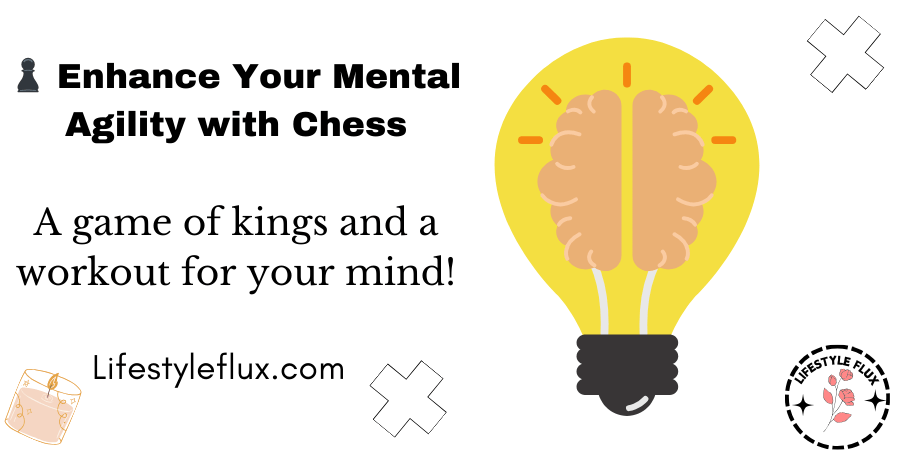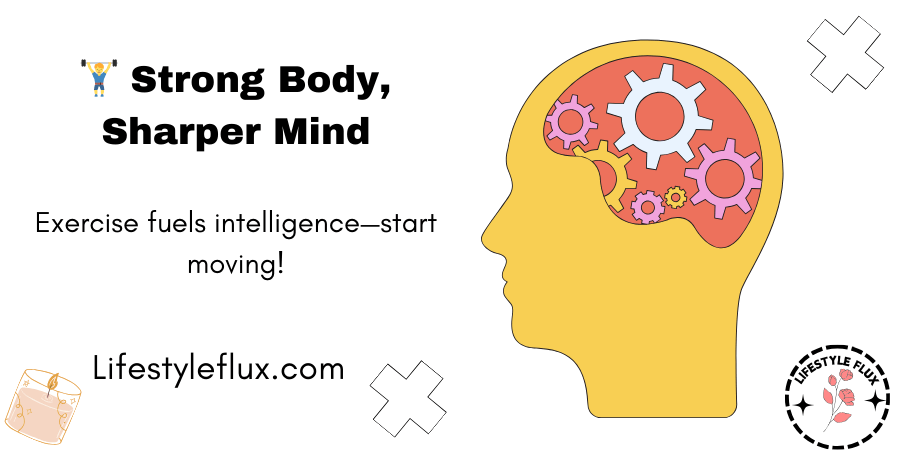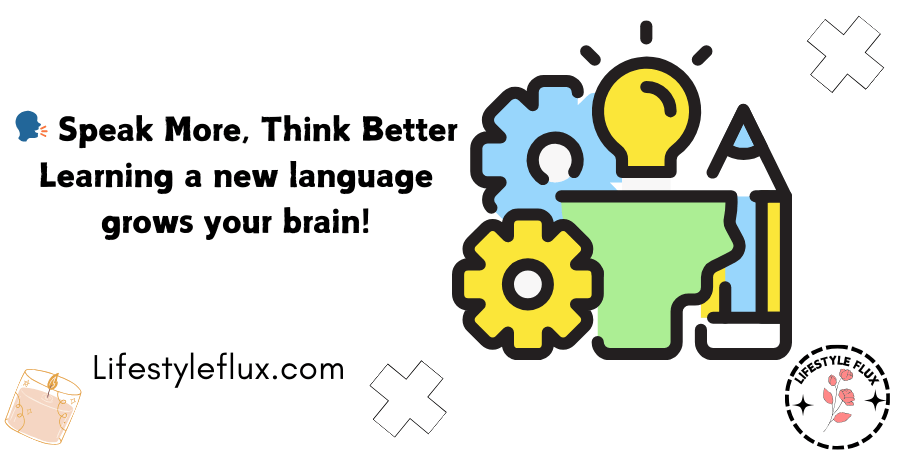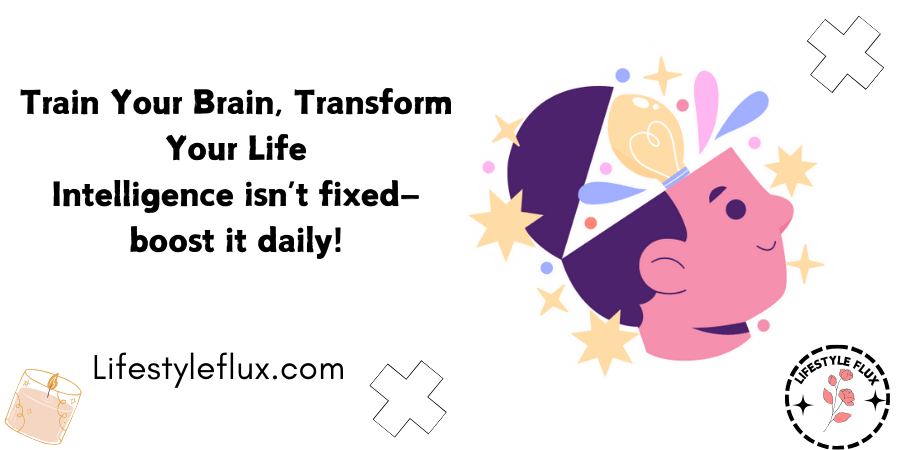Do you ever wish you could think faster, solve problems more efficiently, or simply feel smarter in your everyday life? Good news!
There are three tips to boost your intelligence instantly, and they’re easier to incorporate into your routine than you might think.
Whether it’s enhancing cognitive function through strategic games, improving brainpower with physical activity, or unlocking hidden potential through language skills, these methods are scientifically proven to sharpen your mind.
Let’s explore these simple yet powerful ways to give your brain the boost it deserves.
Table of Contents
1. The Brain Game
Brain games have been a popular way to challenge your mind for centuries. But one game has lasted longer and stimulated more cognitive improvement than any other.
Chess has been around for about 1500 years. Invented somewhere in either India or China, people all around the world have played this complex mind game in one way or another.
For a long time, chess was played almost exclusively by royalty and other members of high society. The game itself looked a bit different back then, but the idea was generally the same.
Two players would manipulate a set of sixteen pieces in order to outmanoeuvre their opponent. The goal is to, ultimately, checkmate the other person’s king. It wasn’t called “checkmate” 1500 years ago, but you get the idea.
Chess gained so much popularity for its intricacy and strategic diversity. You have to think multiple steps ahead and find creative solutions to seemingly impossible problems.

Even after hundreds of years, people are still discovering new ways to play the game. So, how does playing chess affect your brain?
Well, most ancient people didn’t realize it, but this mind game activates several major cognitive functions.
You use your short-term memory to quickly digest your opponent’s moves. Your long-term memory helps you regurgitate effective strategies to counter-attack.
Your visual and spatial abilities let you recognize potential openings. Both planning and creative thinking play a role in strategic adaptation. The list goes on and on.
As you can plainly see, chess requires quite a bit of mental gymnastics.
And, if you’re playing an official game, you have to do all of that within a certain time limit.
That means your brain has to be continuously focused and alert. Otherwise, you won’t think as clearly or perform at your best.
This intense cognitive demand puts quite a bit of stress on your brain.
But, a lot like physical exercise, some stress is good for you.
It’s important to challenge and work your brain just like any other muscle in your body.
Mental exercise preserves your neurological fitness. A fit brain will continue operating at 100% even as you get older.
It will also have an easier time adapting if you experience some sort of neurological damage. For example, chess can repel diseases like Alzheimer’s by maintaining your memory.
Many doctors recommend that people with early signs of Alzheimer’s begin playing chess for about fifteen minutes every day. I know it doesn’t sound like much, but a little mental fitness can make all the difference.
So that just leaves one more important question. Does playing chess make you smarter? The answer is a pretty resounding yes. And it doesn’t really matter what kind of intelligence you’re talking about.
One study found that immersing students in a chess program dramatically improved their reading skills. Another integrated chess into a high-school math curriculum.
They found that playing chess heightened problem-solving skills and raised test scores. A third study discovered that playing chess develops creativity and originality.
Intelligence is a pretty broad concept, but this particular mind game will help you across the board. Even if you’re not very good, playing chess on a regular basis can give you a substantial boost in brainpower.
2. Muscular Development
There are few more iconic enemies than brains and brawn. As the stereotype goes, either you’re clever and small or dim-witted and athletic. But this stereotype couldn’t be more wrong.
In fact, intelligence and athleticism go hand in hand. When you’re good at one, you naturally improve at the other. Your mind controls and motivates your body, which keeps you feeling disciplined and efficient.

It’s no coincidence that many of the world’s most successful athletes have the brains to back it up. So what about the other end of the spectrum? What does exercise do to nourish your brain?
First of all, exercise is one of the healthiest ways to give yourself that much-needed energy boost. Instead of soda or coffee, a 15-minute workout will increase motivation and help you think clearly for the rest of the day.
That increase in concentration allows you to learn and digest more information. Enhancing your body also significantly impacts your mood. When you feel happy and healthy, your brain releases endorphins.
These hormones will increase both enthusiasm and information retention. Just think about the last time you took a test or wrote an essay while you were in a bad mood.
It probably didn’t turn out how you wanted. That’s because emotions like anger and sadness cloud your judgment, memory, and critical thinking skills.
When you raise your mood, you’re basically increasing your intelligence. You’re setting yourself up for success by enabling your brain to perform at its best. Finally, exercise stimulates a process called neurogenesis.
This is when your brain grows new neurons. Normally, as you get older, the population of neurons in your brain gets lower and lower. However, regular exercise slows down the ageing process by regenerating neurons.
This new growth lowers the risk of depression and anxiety, which are commonly associated with neural atrophy.
So, if you want to develop a healthy mind, you can start by building on a healthy body.
3. Linguistic Diversity
Language is one of the most sophisticated things your brain is capable of.
Every time you open your mouth to speak, countless areas of the brain start working in tandem to create words, sentences, and meaning.
But most people don’t realize how large of a role the brain plays. On the surface, it doesn’t seem to do all that much. You can’t see or feel your brain when you speak. Your larynx creates the sound.
Your lips and tongue manipulate those noises into words. But your mouth and throat are pretty much useless without your brain to tell them what to do. Without direction, no one will understand what you’re saying.

In fact, you may not even be able to understand yourself. Let’s take a look at two neurological deficiencies related to language. They’re called Broca’s aphasia and Wernicke’s aphasia.
In general, aphasia is when your language production is impaired because of some kind of damage to your brain. In the case of Broca’s aphasia, that damage affects a major region of language production called Broca’s Area.
This section of the brain is primarily responsible for creating complex speech. When someone suffers from Broca’s aphasia, they struggle to form sentences and use difficult grammar.
Their speech often sounds slow and very simple because one part of their brain can’t function like it’s supposed to. For individuals with Broca’s aphasia, this can be incredibly frustrating.
Most of the time, they can understand language perfectly fine. They know, in their mind, exactly what they’re trying to say. But their brain still struggles to translate that message into fluid language.
On the flip side, Wernicke’s area is another important region for language production. It handles speech comprehension, which means it helps you to create meaningful speech.
If this part of your brain is damaged, your words may lose their meaning entirely. Wernicke’s aphasics can often get the words out of their mouths, but can’t connect those words in an organized way.
It just sounds like a jumble of unrelated ideas. Unlike Broca’s aphasics, Wernicke’s aphasics rarely realize there’s anything wrong. In their mind, the words are coming out exactly like they’re supposed to.
But, to everyone else, they’re almost impossible to understand. So why am I telling you all this? What does brain damage have to do with expanding your mind?
Even if your lips, tongue, and voice box are working perfectly, language is a deeply neurological process. That means, by practising the language, you’re exercising your brain more than any other part of your body.
Every time you speak, listen, read, or write, your brain is making countless new connections. It’s overcoming challenges and creating new ideas.
This development motivated a group of researchers to investigate whether or not language production could stimulate the growth of your brain.
In 2012, a Swedish study examined a sample of young adults as they started learning a foreign language. At the start, each student only spoke one language.
Over 3 months, they were given daily courses in Arabic, Russian, or Dari. If learning a new language does make you smarter, their brains should grow in some way, right?
To test this, every student’s brain was scanned before and after this three-month language course. If any growth were happening, the researchers could see exactly how much.
Researchers also wanted to make sure that this brain growth was a product of language production, not just learning in general. They decided to compare the participant’s brain scans to a group of regular cognitive science students.
Both groups spent the same amount of time in class and the same amount of time studying. However, the cognitive science group focused on something other than learning a new language.
So what happened? Did studying a foreign language stimulate growth as they expected? Not only did their brains expand, but the amount of growth also correlated with language proficiency.
In other words, the most fluent students showed the most neurological growth. When compared to the cognitive science group, the difference was even obvious.
Foreign language students showed significantly more development than non-language students. While general learning does make you more intelligent, adopting a new language exercises so many diverse parts of your brain.
Becoming bilingual is one of the best ways to keep your brain healthy and capable.
Luckily, learning a foreign language has never been easier. There are a number of different online classes and applications you can use to adopt a new language in no time.
So, if you want to increase your intelligence, it might be time to expand your linguistic horizons.
Conclusion:
Intelligence isn’t just about IQ scores or memorizing facts—it’s about adapting, learning, and challenging yourself to grow.

By integrating activities like chess to enhance strategic thinking, regular exercise to boost mental clarity, and language learning to expand cognitive capacity, you’re setting yourself up for long-term mental health and success.
These practical tips don’t just help you think better; they prepare you to face life’s challenges with creativity and confidence. Start small, stay consistent, and watch your brainpower soar!
Sources:
https://www.sciencedirect.com/science/article/abs/pii/S1053811912006581?via%3Dihub
https://www.sciencedaily.com/releases/2012/10/121008082953.htm
https://www.britannica.com/science/Broca-area
https://bloomington.iu.edu/~brainevo/publications/LEB-lang-relevant-brain-evo.pdf#gsc.tab=0
https://rknights.org/wp-content/uploads/margulies.pdf
https://www.brainscape.com/academy/does-chess-make-you-smarter
https://pmc.ncbi.nlm.nih.gov/articles/PMC5426665
https://www.sciencedirect.com/science/article/pii/S1747938X16300112

Founder and CEO of Lifestyleflux.com, I bring years of expertise in self-improvement, wellness, and personal development to help you lead a happier, more balanced life. Through practical insights, eBooks, and consultations, I share actionable strategies rooted in experience and a passion for empowering others to unlock their full potential.

